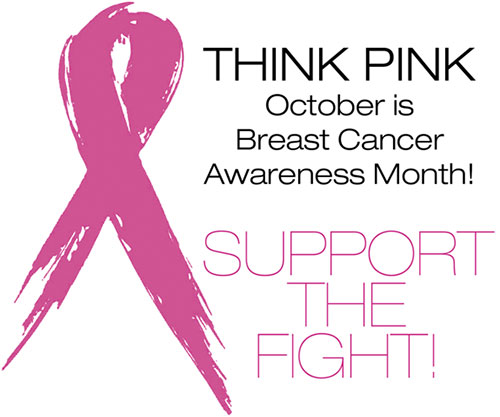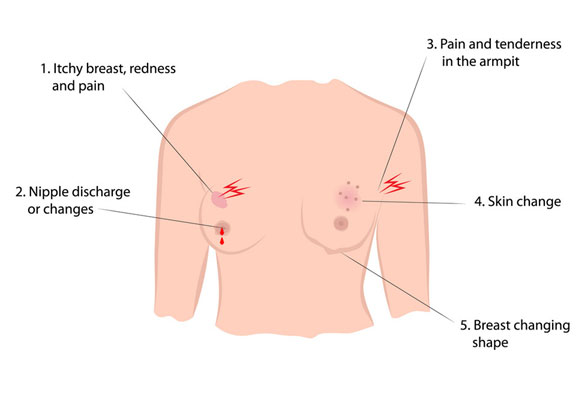Be Breast Aware

One evening last year, a bright, vibrant and highly educated young lady from India came to my breast clinic in England.
She said that there was a lump in her right breast that had been troubling her for the last month and was worried that it may be mastitis, an infection that causes the breast to become painful and inflamed. My initial thought was that it was another case of a young woman worried about minor lumpiness caused by normal hormonal changes. I started examining her. There was an 8 cm lump, with inflamed skin with massive axillary (armpit) lymph nodes. I was shocked, not just at the condition but that such an educated and intelligent woman had delayed seeking medical help until the situation had become extremely serious. She was completely unaware of the nature and implications of her condition.
Never Ignore Symptoms
Never ignore symptoms and always seek help at the earliest. Breast cancer is no longer a western disease – it affects everyone, including women in India. It is the commonest form of cancer both across the globe and in this country. In India, it appears at the age of 40 and above, a decade before it normally develops in the west. It is also biologically more aggressive. The unfortunate aspect of all this is the disease is a well researched and known one that has a number of treatments available and which is easily curable.
Women should regularly examine themselves for the common symptoms as shown in the illustration below. It must be noted that 90% of all lumps turn out to be nothing, but that does not mean that symptoms should be ignored and medical help not obtained. The right time to do a breast examination is after your periods or on a regular monthly basis if you are postmenopausal.

If you are over 40, you should have a mammogram done every 6 months.If you have a close relative like a mother or sister who had breast or ovarian cancer, seek medical advice on the need for regular imaging, in addition to the beast self-examination. Only 5% of breast cancers are genetic related, so do not have genetic testing done unless advised by a doctor. Note that breast and ovarian cancers may be linked, which is why a specialist should be consulted if there is suspicion of either.
Reduce The Risk
Breast cancer is related to obesity. Regular exercise and a healthy diet will reduce your breast cancer risk. Pregnancies over the age of 40, postmenopausal hormone treatment (HRT) and not having children increases the risk while breastfeeding reduces it.
Do Not Delay
In western countries 1 in 8 women contract breast cancer, while in India the figure is probably 1 in 20, although no accurate data is available. While these number may appear to be good for India, in the west the majority of breast cancers are curable while in India it is fatal in 50% of the cases. This is primarily due to lack of awareness, and late screening and examination. Breast self-examination, early detection, mammograms/ultrasoundsand timely medical help are key factors in surviving breast cancer.
Chennai records the second highest number of breast cancer cases in India.
You should see your doctor if you have:
- A change in the size, shape or feel of a breast
- A new lump or thickening in a breast or armpit
- Skin changes such as puckering, dimpling, a rash or redness of the skin
- Fluid leaking from a nipple and you aren’t pregnant or breastfeeding
- Changes in the position of a nipple
- Breast pain
- Your symptoms are unlikely to be cancer but it is important to get them checked by a doctor
Mr Sankaran Narayanan
Consultant Breast surgeon
University Hospital North Midlands
Stoke UK

